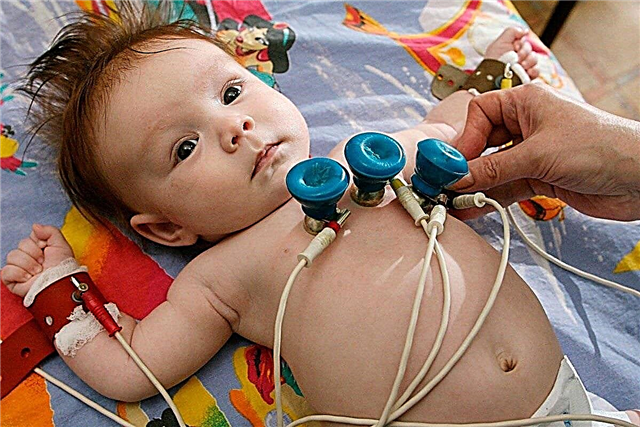
Ovulation is considered a fertile period when a woman's fertility is at the highest possible level. That is why all those planning to conceive with such diligence try to determine the day of ovulation as accurately as possible. But for the onset of pregnancy, one auspicious day is not enough, it is important that other predisposing factors contribute to the emergence of a new life.
What happens during this period?
The ovulatory phase usually occurs in the middle of a woman's menstrual cycle. It happens two weeks before the start of the next menstruation. Therefore, for simplicity of calculations, it is proposed to subtract 14 from the total cycle duration. This is how long the second half of the cycle usually lasts - luteal. On the day of ovulation, a mature egg is released from the follicle located on the surface of the right or left ovary.
With double ovulation, which happens very rarely, two or more follicles ripen at the same time, and more than one germ cell may come out. Double ovulation cycles increase the likelihood of multiple pregnancies.
It takes time for the reproductive cell to mature. From the very first days of the new cycle, several follicles ripen in the ovaries under the influence of the FSH hormone. They are called antral. Of these, already by the 7-8th day of the cycle, the unconditional leader is allocated - the dominant follicle, it grows faster, more intensively, and the growth of the rest slows down and the reverse development occurs.
It is in the dominant follicle that the reproductive cell matures, without which a woman cannot conceive a child. 2 days before ovulation, estrogen levels rise, which leads to a surge in the hormone LH.
The surface of the follicle, which has reached a considerable size by this time (up to 22-24 mm), becomes thinner and ruptures. A mature oocyte, ready for fusion with the male reproductive cell, enters the abdominal cavity, and from there into the fallopian tube. This is ovulation day.

But speaking of ovulation, one cannot but say that the phase lasts exactly as long as the female reproductive cell lives. And nature has given her not so much - from 24 to 36 hours maximum. It is during this time that the gametes of men and women must meet in the fallopian tube, merge and exchange DNA with the formation of a new cell - a zygote.
If the sperm does not fertilize the egg during the ovulatory phase, the woman's sex cell dies, and after two weeks it is excreted along with the rejected layer of the endometrium (menstruation), and the cycle starts over.

On the eve of ovulation, nature sends women special "tips" that are designed to draw the attention of the fair sex to the changes leading to high fertility. The libido increases, the woman is in a "playful" mood, the amount of cervical mucus increases - the discharge due to it becomes more abundant, transparent, viscous, like raw chicken egg white. Some also have other symptoms, such as pain in the area of localization of the ovulating ovary.
You can more accurately determine the onset of ovulation ovulation home tests, which are very easy to use. They react with a second strip to high levels of luteinizing hormone in the blood, and the release of LH occurs 12-24 hours before ovulation.
Thus, the most favorable days for the conception of a baby fall on the day of ovulation and the day after it. Then conception is unlikely.

Chances of pregnancy
A prerequisite for the onset of pregnancy is the meeting of two full-fledged, viable germ cells: male and female. Therefore, any sex during the oocyte release period, if intercourse is unprotected, or there is at least a minimal probability of sperm penetration into the female genital tract, can theoretically lead to pregnancy.
It is important to understand that intercourse that occurs a few days before the release of the egg can cause pregnancy. Spermatozoa have a greater vitality than the female reproductive cell, and they can exist without compromising their abilities in the female reproductive tract up to 3-5 days.
If unprotected intercourse was before ovulation for 3-5 days, then the likelihood of conception is also high - the sperm will wait for the egg and immediately begin fertilization, while there may not be sex at all on the day of ovulation.

Reproductologists estimate the chance of conception the first time with unprotected intercourse on the day of ovulation and within a day after it (while the oocyte lives) at a maximum of 33–34%. It means that every third couple can conceive a child during this period. With sex before ovulation, the chances of getting pregnant are estimated at 29-30% per day, two days before oocyte release - at 26-27%, three days - at 16%, four days - at 10%.
In many ways, the probability depends on a wide variety of factors and may be lower under certain conditions. It is influenced by:
- age of partners;
- their state of health;
- the presence or absence of bad habits.

The percentages presented above are for couples in their prime of reproductive life - 20-30 years. After 30 years, the aging process of germ cells begins, chronic diseases acquired by a man and a woman are affected. The ovarian reserve of women after 35 is rapidly depleted, 5-6 times a year can occur anovulatory cycles (in which ovulation does not occur at all). Spermatozoa also do not get younger over time, mobility is lost, the life of the germ cells is reduced, morphological changes appear, and therefore the probability of conception in a couple at 35 years old from the first ovulation day does not exceed 15%, and after 40 years it is no more than 1– 3%.
It is possible to become pregnant in the ovulatory phase not only from unprotected intercourse with full ejaculation. The likelihood of pregnancy and interrupted intercourse is also quite high. And it's not even a man's reaction speed, as many think, but physiology. In men, small amounts of full and mobile sex cells can also be included in the physiological lubricant, which is produced quite naturally in a man in a state of sexual arousal.
If a couple has more than one intercourse, then the next lubrication will definitely contain the sperm remaining from the first ejaculation. Of course, there will be few of them, but after all, many are not needed for conception - one strong, mobile, healthy sperm is enough.

The younger, healthier the couple, the higher the chances of pregnancy. This should not be forgotten either when planning the long-awaited conception, or when deciding on contraception. It is imperative to have sex during ovulation for conception, but those whose plans for the birth of offspring are not yet included should have sexual intercourse with a condom - barrier contraception has a high Pearl index, which indicates its reliability.
Oral contraceptives are even more reliable. The principle of their action lies in the hormonal suppression of ovulation, which means that while taking OK, the egg does not mature and does not come out. Only a protected sexual intercourse guarantees that there will be no "surprises". A doctor should select a contraceptive for a particular woman.
Here are a few numbers of statistics, on which the Pearl index is based on determining the effectiveness of contraceptives:
- with the use of oral contraceptives (OC) - pregnancy occurs in 0.03 -0.5 cases per 100 couples;
- with the use of an intrauterine device, an “interesting position” can occur in 2-3 couples per 100;
- with a condom - 5-10 women out of 100 become pregnant (usually due to mistakes of partners in using a contraceptive);
- with interrupted intercourse, 15–20 out of a hundred women become pregnant.
To study the features of your menstrual cycle, to be able to identify and distinguish ovulation from other days of the cycle is very important not only for those planning to conceive, but also for those who protect themselves from unwanted pregnancy.

Can you improve your chances of conceiving?
This question is very relevant for couples who dream of an heir or heiress. And if the first time you did not succeed in conceiving a baby, despite intercourse during ovulation, you should not despair - only 17% of couples become pregnant the first time, the rest just need more time. There are a great many reasons why fertilization does not occur even when the sex cells meet, and not all of them have been studied by medical science.
It is known that the vast majority of planning couples manage to become pregnant within six months or a year. If you are over 35 years old, then after six months of unsuccessful attempts, you should seek medical help. Often a couple needs to undergo a mutual examination - to pass tests for infections, hormones (for example, with increased prolactin in a woman's blood, ovulation does not occur). And in 85–90% of cases, doctors will be able to help by prescribing conservative treatment to bring the hormonal levels of partners back to normal.
It is better for those planning to start having sexual intercourse with the onset of the fertile window (3-4 days before ovulation). Do not make love too often - multiple ejaculations reduce the quality of your semen. But long-term abstinence also reduces the quality of sperm, and therefore it is worth adhering to the so-called golden mean - sex every other day.
With this rhythm of sexual activity in men, there is an optimal spermogram for conception.


Almost all ovulation disorders in women are associated with changes in hormonal levels, deviations from the norms in the amount of certain hormones in different phases of the cycle. To improve women's health, you need to closely monitor your cycle and consult a doctor in time if a failure occurs.
Simple guidelines can help increase your chances of conceiving.
- Give up hard work, exhausting physical activity, work at night - many hormones are produced in the right amount only during a night's sleep, and therefore for a woman and a man who is planning to conceive, a full night's sleep is critical.
- You should give up alcohol, nicotine, drugs. For men, it is important to stop using marijuana at the time of planning (many consider it harmless, but in practice it has been proven that cannabinoids cause a change in the morphological characteristics of sperm). It is important for a woman to give up coffee, strong tea and even dark chocolate (anything that contains a large amount of caffeine impairs female fertility).
- When having sexual intercourse, do not use lubricants and intimate gels. And after intercourse, you should not immediately run into a bath or shower, it is better to lie down alone with your legs raised: it takes sperm cells about 40 minutes to reach the fallopian tubes. Do not douche after intercourse.


Do not place high hopes on decoctions, herbs and vitamins. Rather, they are akin to the placebo effect, the effect of traditional medicine on the fertility level of sexual partners has not been proven. Take vitamins only with the permission of your doctor, in order to exclude an overdose of certain substances. A healthy couple does not need folk remedies; within a year they will be able to conceive a child even without sage or borax. And for a couple with reproductive disorders, folk remedies are unlikely to help - more often you need complex treatment, which includes hormonal agents.
Before conception in 3 months a man needs to stop visiting a bathhouse and a sauna, since heating the scrotum several times reduces the number of motile and viable spermatozoa. It is recommended for both partners to wear comfortable underwear made of natural fabrics that does not rub, does not squeeze, does not disturb the blood supply to the small pelvis.
Nutrition should be complete, it must contain proteins - meat, fish, poultry. If a woman is a big fan of mono-diets for weight loss, such diets should be abandoned at the time of conception planning.
Particular attention should be paid to weight - with obesity, increased body mass index, the probability of conception is reduced, and losing weight by only 5% of body weight often allows you to fully solve the issue of family infertility without any treatment at all.
The psychological state of the partners is also important. A man who is constantly under stress usually cannot boast of excellent spermogram results, and women with chronic emotional and psychological stress often develop anovulation - lack of ovulation, which causes female infertility.
Why it happens? Because stress hormones - adrenaline, cortisone - partially inhibit the synthesis of sex hormones, which are very important for the normal process of sperm formation (spermatogenesis) and for ovulatory processes. Thus, stress is a common cause of hormonal imbalances in men and women.
This is especially noticeable in the example of women. The more a lady wants to become a mother, the more stress she experiences every menstrual cycle.
Conception does not work, and when the couple, having already resigned themselves to the futility of attempts, abandons the idea of conceiving a child, pregnancy after a while comes suddenly and unexpectedly for everyone. The woman just calmed down and her hormones returned to normal.

The likelihood of pregnancy decreases during ovulation and in the event that if the cycle included travel with a change in climatic and time zones. In such situations, a woman's internal biological clock gets lost, ovulation may occur earlier or later than expected, or it may not occur at all.
The fertility of partners is negatively affected by taking antidepressants, long-term use of antibiotics, anticoagulants. It is undesirable for women to take painkillers during ovulation, they negatively affect the state of the reproductive cell. It is worth refusing to take medications with the permission of a doctor in advance - 2-3 months before conception, this is especially important for men, because the sperm renewal process takes at least 90 days.
A couple, determined to have a baby, should not forget about feelings. Without them, sex turns into a set of body movements, and the likelihood of conception decreases. It has been proven that in couples where love reigns, it is possible to conceive a baby much faster than in couples where sex is "on duty".





